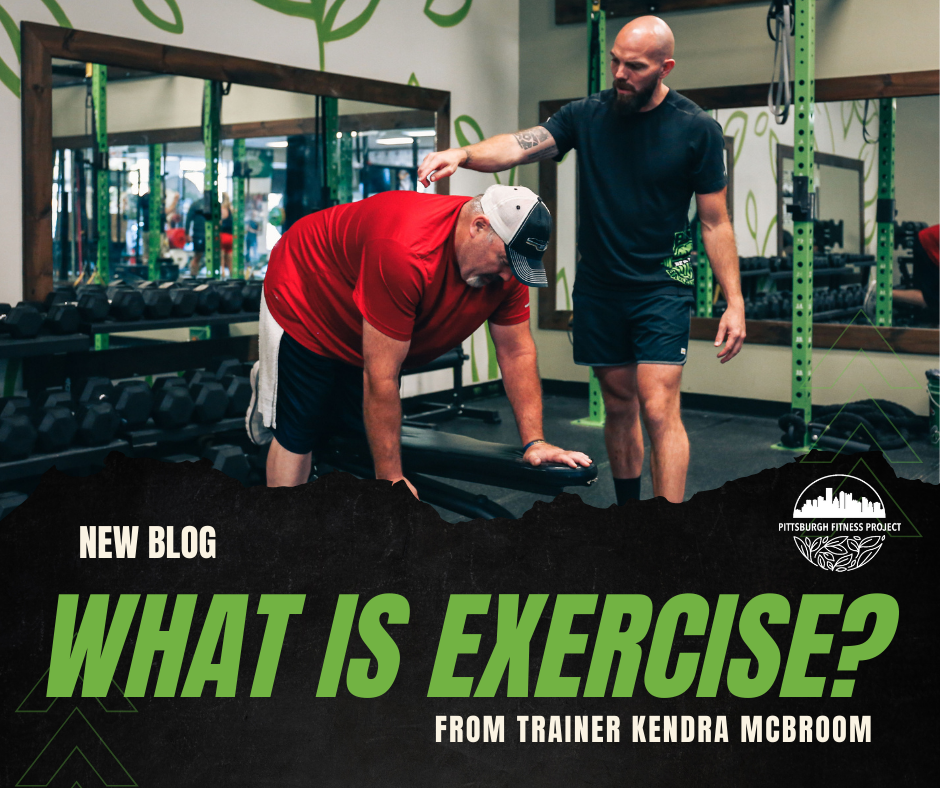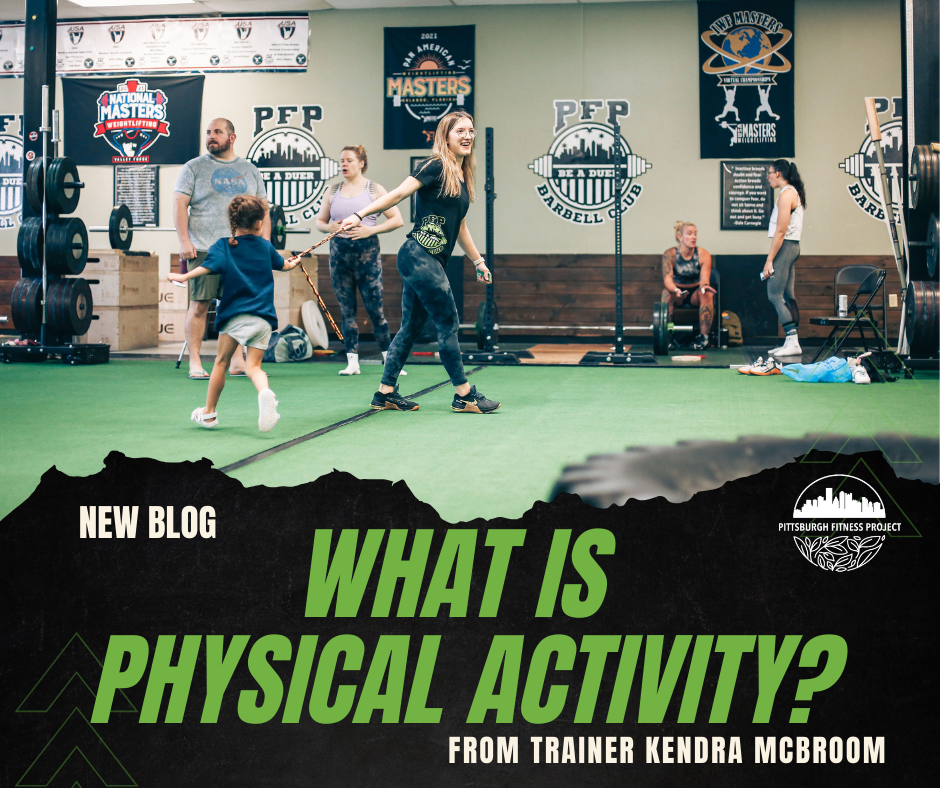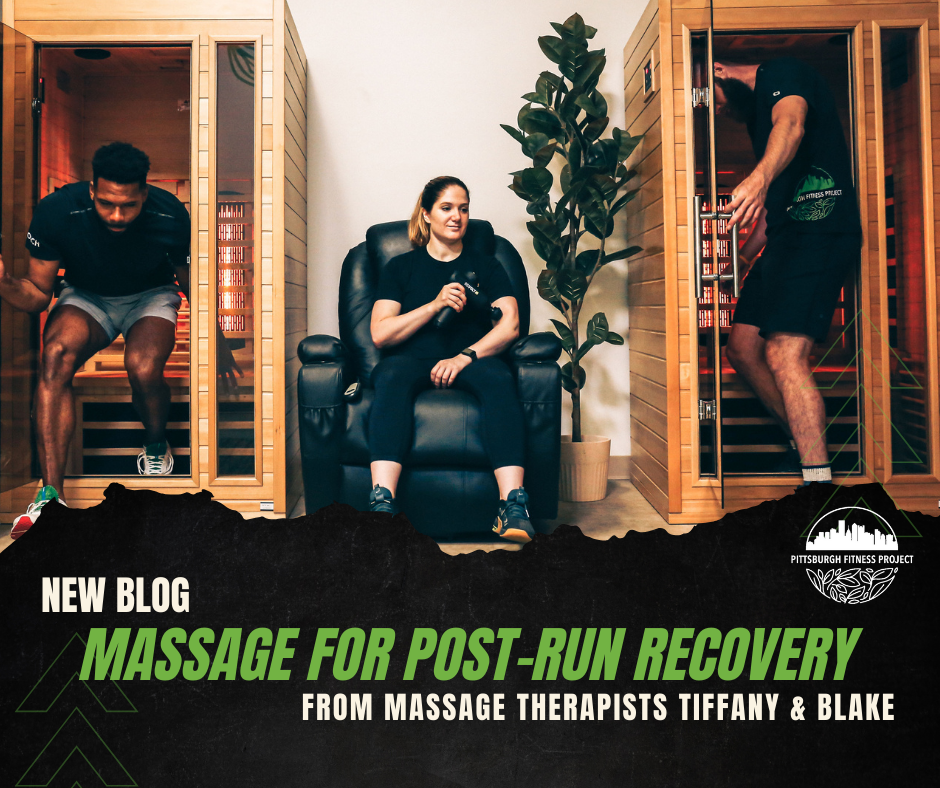
OVERCOMING NEW YEAR RESOLUTION PITFALLS
At the start of the new year, many of us set intentions to improve our fitness and wellbeing. As time goes on, it can become quite easy to fall into some common pitfalls. In fact, most resolutions get dropped by the second week of the year! As you get back on track, the key is to focus on goals that are realistic, sustainable, and designed for long-term success. Let’s talk about some common pitfalls and tips for staying on track with your fitness journey in 2025.

JASON’S KEY TO NEW YEAR RESOLUTIONS
Now that the celebration is over and we most likely put on a couple more pounds from a loved one's pies and/or cookies. It might be time to start doing the New Year’s resolution. For Jason, the key to this has been doing something he already loves or figuring out how to love something new.

NEW YEAR, NEW YOU…
It’s that time of the year again when we all collectively agree to pretend that we’re suddenly going to transform into perfect, glowing versions of ourselves in 24 hours. Resolutions are set, gym memberships are activated, and Pinterest boards are filled with dreamy salads and motivational quotes. But by February, it’s usually just us, a bag of cheesy Doritos, and a firm belief that we were "probably too ambitious" in our goals.
Well, this year, let’s ditch the "I’m going to work out every day and eat only kale" approach. Instead, let’s go for bite-sized resolutions—tiny, achievable, totally doable goals that don’t make you want to cry by the end of January. Let’s talk fitness, nutrition, and self-care in ways that won’t make you feel like a failure before the first snow melts.

WHAT TO DO IF YOU DON’T ACHIEVE YOUR GOAL
Goal setting is essential for many areas of life and will help stay disciplined and feel rewarded if accomplished. Whether it's a fitness milestone, career advancement, personal growth, or even a creative pursuit, the anticipation of achieving something meaningful drives us forward. But what happens when things don’t go as planned? When you don’t achieve your goal, it’s easy to feel disheartened or even question your abilities. The key, however, is to use the experience as feedback, rather than see it as failure. With the power of reflection and intention you can move forward and reestablish your goal.

5 TIPS FOR SUSTAINABLE HABIT CHANGE
Changing a habit, whether forming a new one or breaking an old one, can feel overwhelming, intimidating, and slow. With the right strategies, it is possible to make sustainable changes. Habit is about creating systems and setting yourself up for success. Here are five tips backed by psychology and behavior science to help you make positive changes in your habits.

MEASURING PROGRESS: BEYOND THE SCALE
Tracking your progress in the gym is an important thing to do so you can get stronger, feel healthier, and feel a sense of accomplishment in what you’re doing. But what does that look like? The truth is that there are so many ways to measure your progress, and this goes far beyond aesthetics or a number on the scale. I’m going to explain the many ways you can do this so you can ensure you’re getting the most out of your training physically and mentally.

HOW LONG SHOULD YOUR TRAINING CYCLES BE?
When it comes to training, there's a certain point where your body will need some sort of change or variation from what you are currently doing. Why does this happen? Well, our bodies are very adaptable. This means that while something may seem difficult at first if you continue to do that same movement or training, your body will adjust, and it will become easier. This sounds great initially, although, as you have probably noticed, you reach plateaus in your training. Either you stop running that mile faster, or you can't lift that one more pound on the bar. So, what do we need to do to get the results we want? We have to slightly modify our training and add a new stimulus so our body can improve.

MASTERS TRACK & FIELD
Every four years, the Olympics bring excitement as some of the world’s greatest track and field athletes compete for gold. The Paris Olympics did not disappoint! Check out this recap of the Masters of Track and Field!

A BEGINNER’S GUIDE TO ACHIEVING YOUR FIRST PULL-UP
Whether you're new to fitness or have been working out for some time, the pull-up is one of the most challenging exercises and is often seen as a milestone. Achieving your first pull-up requires time, technique, and repetition. If you're aiming to conquer your first pull-up, this guide will take you through the steps to get there.

MASTERS SWIMMING
The Olympics have wrapped up after two weeks of great competition. As happens every four years, sports that usually are not on the main stage get loads of viewers and positive attention. One of these sports was swimming! The drama around swimming coming into the Olympics was unrivaled. Australia and the USA were exchanging fierce words about who would come out with more GOLD medals, Leon Marchand of France was attempting to take down Micahel Phelps’s last Olympic Record, and multiple world records were shaking at the prospect of being shattered.

EXERCISING AS YOU AGE
We’ll all feel the effects of aging as we get older. The aging process affects all aspects of our wellbeing, including our ability to exercise. So how do we counter these effects? Let’s look at how you should exercise as you age and what changes you may need to make as you grow older.

WHAT IS PHYSICAL FITNESS?
Physical fitness is a result of exercise or physical activity. It is the efficiency and capacity of your cardiovascular health, muscular strength, flexibility, as well as your overall body composition. Each of these components prove to provide different function for your body and often have separate training focuses, but they ultimately come together to provide total body function.

WHAT IS EXERCISE?
Physical Activity is not exercise, but exercise is physical activity. It is a narrower scope focused on a more regimented and planned routine of physical activity. If you haven’t already, I encourage you to read my previous blog on physical activity and what defines it. I consider exercise to be a step up from being physically active when it comes to working towards more concrete or specific goals.

WHAT IS PHYSICAL ACTIVITY?
Being active does not have to be exercise. It does not have to look like a strict routine and does not require lifting “scary weights.” To be physically active, all you have to do is move. Any type of movement beyond rolling over in bed is adequate. Getting out of bed to start your day is being active. Bending over to tie your shoe? Also considered a form of being active.

RUNNING YOUR FIRST 5K: A BEGINNER’S GUIDE
Running a 5K is a great goal for new runners or those simply looking to add a fun cardio-based goal to their fitness routine. Here’s a comprehensive guide to help you prepare for your first 5K safely while having some fun along the way.

BUILDING FLEXIBILITY IS LIKE BUILDING MUSCLE
One of the more common reasons people go to a gym or start exercising is to build flexibility or Range of Motion (ROM). This is the total range of rotation that a joint like your hip or shoulder can move through both passively and actively. When this range is limited it can cause pain, discomfort, and even restrict actions you do in your everyday life. The reason why exercise can help this is because many exercises move a joint through a large ROM causing you to build strength and stability in previously untrained positions for that joint. Although, strength training isn’t the only way to build this ROM. You can use similar concepts that build muscle and use them to increase your ROM.

REASSESSING YOUR ANNUAL GOALS
It’s coming up on the middle of the year, and you have either already accomplished your yearly goals, or you are still working towards them. Both of these circumstances are perfectly normal, but the question is, how do you plan your next move? Exercise and training goals vary in difficulty, time, and measurement.

MASSAGE FOR POST-RUN RECOVERY
We know we just talked about it, but now that marathon season is fully in swing, we thought this information could bear to be repeated! Make sure you aren’t burning out and that you are taking the time you need to recover as we head into this busy summer! Remember, your recovery is just as (if not sometimes MORE important) than your training!

RETURNING TO EXERCISE POSTPARTUM
Women are often given next to no guidance on how to return to exercise in the postpartum period. At the 6-week follow-up after childbirth, OBGYNs will tell their patient that they are safe to return to exercise, and from a tissue-healing perspective that’s totally correct. But ask most women at 6 weeks postpartum if they feel physically ready to start running, weightlifting, etc., and the majority are going to say, “Absolutely not!”

RUNNING THOSE HILLS
Pittsburgh has a lot of hills! Learning to run up and down hills may never get easy, but learning proper technique will help you along. Let’s look at some running techniques for running those hills.
